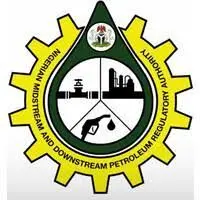The Nigerian Midstream and Downstream Petroleum Regulatory Authority (NMDPRA) has affirmed that all petroleum imports, including diesel, meet current quality specifications, dismissing allegations of ‘dirty fuels’ entering the country.
Following a meeting with oil marketers and local refinery operators in Abuja, Ogbugo Ukoha, Executive Director of Distribution Systems, Storage, and Retailing Infrastructure at NMDPRA, reassured the public that the regulator strictly ensures the quality of imported petroleum products.
This statement comes in response to recent accusations by Dangote Refinery. Devakumar Edwin, Vice President of Oil and Gas at Dangote Industries Limited (DIL), criticised the NMDPRA for granting import licences ‘indiscriminately’ to oil marketers, allowing the importation of substandard diesel and aviation fuel.
However, Ukoha countered these claims, stating, “There is no dirty fuel that we would encourage to come into Nigeria. And there is no dirty fuel being brought in.” He highlighted that the average sulphur content of imported diesel has significantly decreased, now well below the 50 parts per million (ppm) legal limit.
Present at the meeting were notable industry figures, including Dapo Segun, Executive Vice President of Downstream at the Nigerian National Petroleum Company Limited (NNPC); Dr. Gabriel Ogbechie, Group Managing Director of Rain Oil Limited; and Rabiu Umar, Group Chief Commercial Officer of Dangote Group.
Ukoha noted that the Economic Community of West African States (ECOWAS) had endorsed the Afri-5 fuel roadmap in 2020, setting a 50 ppm sulphur content limit for certain products. While imports must comply immediately, local refineries have until December 31, 2024, to meet this standard.
“We have seen a downward trend in sulphur content since February 1, following our stringent enforcement measures,” Ukoha explained. “As of June, the average sulphur content in imported diesel is far below the 50 ppm limit.”
Regarding local refineries, Ukoha mentioned that the deferral allows them to continue producing higher-sulphur fuels until the end of the year. He expressed confidence that new refineries, equipped with desulfurization units, will soon produce fuels with sulphur levels as low as 10 ppm.
The NMDPRA remains committed to ensuring only high-quality petroleum products are supplied and consumed in Nigeria, maintaining strict regulatory standards to protect public health and the environment.



